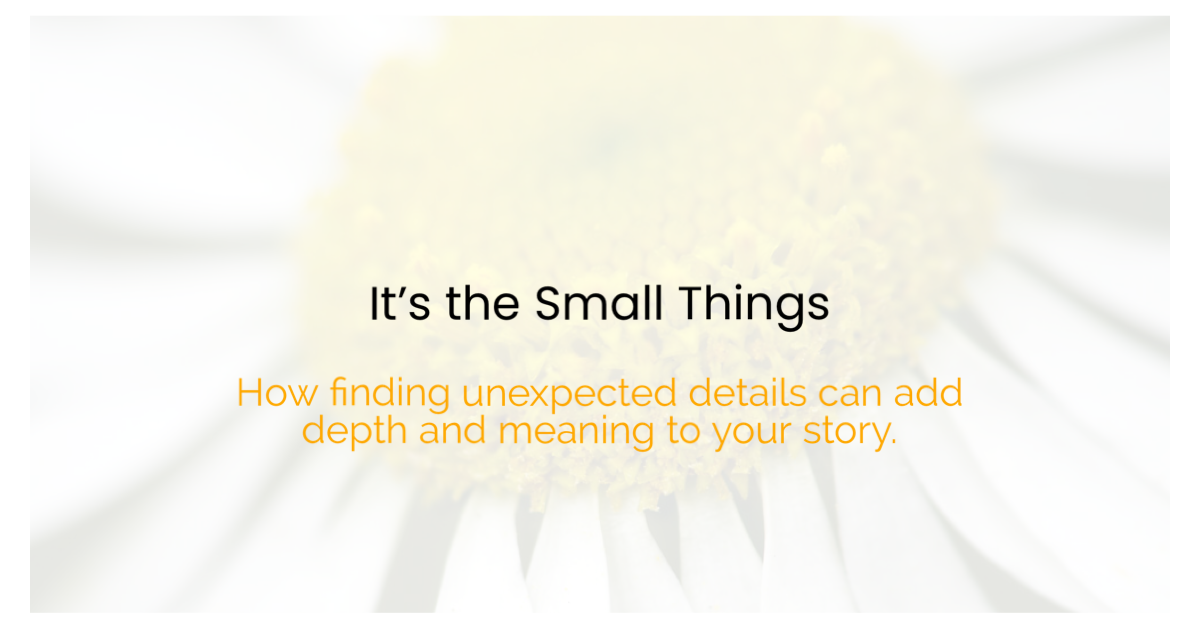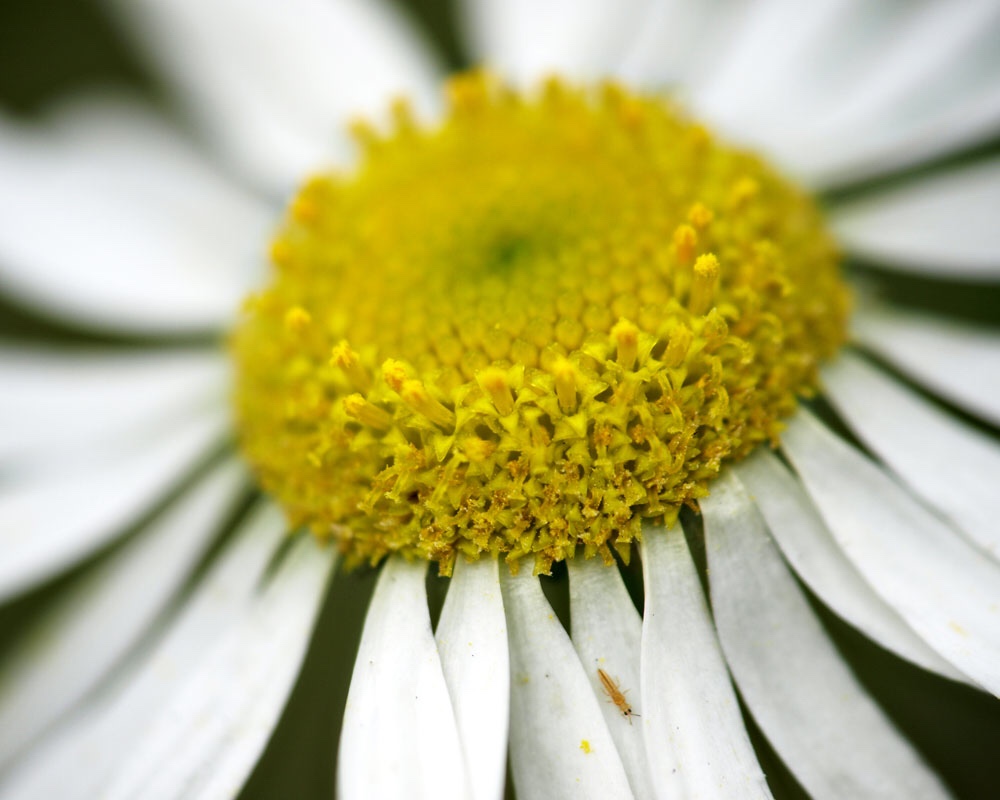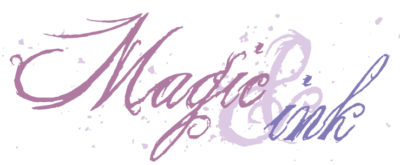
I recently recovered a cache of old blog posts, from the early days of this blog (before the archive got blitzed). Some of them I quite like, and think it’s worthwhile to reshare them.
I didn’t notice the tiny bug on this daisy until I was home in front of the computer doing all the alterations that one does in Photoshop that help you make up for your lack of skill as a photographer. I certainly wasn’t trying to take a picture of the bug, so the fact that it managed to get itself centered in the minuscule focus area of this particular lens is pretty remarkable.

On the whole, it does nothing to alter the overall composition of the photograph. You would never miss it if it weren’t there. But, at the same time, it adds a depth and meaning to the image that transform it into something entirely different. It’s not just a picture of a pretty flower anymore, but speaks (I think) to the scale of life, and to how many layers of our world we pass over every day without ever really noticing.
I often feel the same way about writing. You can have a perfectly good story—plot, characters, narrative, dialog, theme, all the elements in place and competently executed—but it is the unexpected detail that magnifies the story into something greater, something truly memorable. It might be a particular phrase or image in the narrative; it might be a quiet insight the POV character has, or an off-hand comment by a minor character. It can be anything really. But it’s something small. Nothing that changes the overall course of the story, only how the reader relates to it. You probably would never miss it if it weren’t there.
The thing is, you can’t go out and say, “I’m going to go out and take a picture of a teeny-tiny bug on a daisy petal today.” You only chance on this sort of mini-revelation when you pause in your wandering through the garden to crouch down over a daisy, armed with your camera and
most powerful lens. It’s hard keeping balance there, keeping the camera steady as you try to get just the right focus. You snap a few times, not even aware what it is you’ve got until later.
I’m trying to keep this in mind as I work on the “zero draft” of my current WIP novel. It’s handwritten,1 because I know it’s the only way I can silence my inner editor until I get through the whole story at least once. My handwriting is messy and disorganized, so it’s okay if the story is too. There’s no temptation to go back and polish things up, even things I know are really broken in the way I’ve written the story so far. Plus, I’m avoiding all the distractions that are available when I work on the computer. So, it’s a win-win solution.
But there is a converse temptation that I find is harder to resist: because I know it’s a zero draft, there are times where I’d like to skip over the less-exciting parts (transitions, descriptions, exposition, etc.) and get to the high-points of the drama. I know the general course of events, beginning to end, so it’s not that I need to do exploratory writing to find out what happens next. “This is just a sketch,” I tell myself. “You can fill in the details later.”
But.
But, but, but. It’s those details that really make a story come alive, isn’t it? That turn it into something more than just an exercise in plotting and characterization. And you can’t find those details if you don’t stop and pay attention to what it is you’re writing. And you can’t set out with the intention of putting meaningful details into the text, either, without running the risk of becoming preachy, or surgical. This sort of thing can only be discovered naturally.
So I try to make myself stop, crouch down over the story with my pen in hand and see what develops. What is the color of the dress she wears to the feast, and what pattern is embroidered in its hem? What sound do the paddles of the oars make across the water? Why does she notice one particular vendor in the marketplace? Stop and look, I tell myself.
Listen.
Observe. Don’t rush by. Take the time to write it all down. I may not know what I’ve discovered until much later, when I go back and start rewriting the next draft. It may be that whatever it is I’ve captured is too blurry and out-of-focus to be of any use at all, but if I don’t at least try, there won’t be anything at all when I go back. I’ll have nothing but an empty shell of a story—which might be entertaining, if I’m skilled at my craft, but otherwise lack heart and soul.
They say god is in the details. Well, I guess I want god to be in my story, too.
